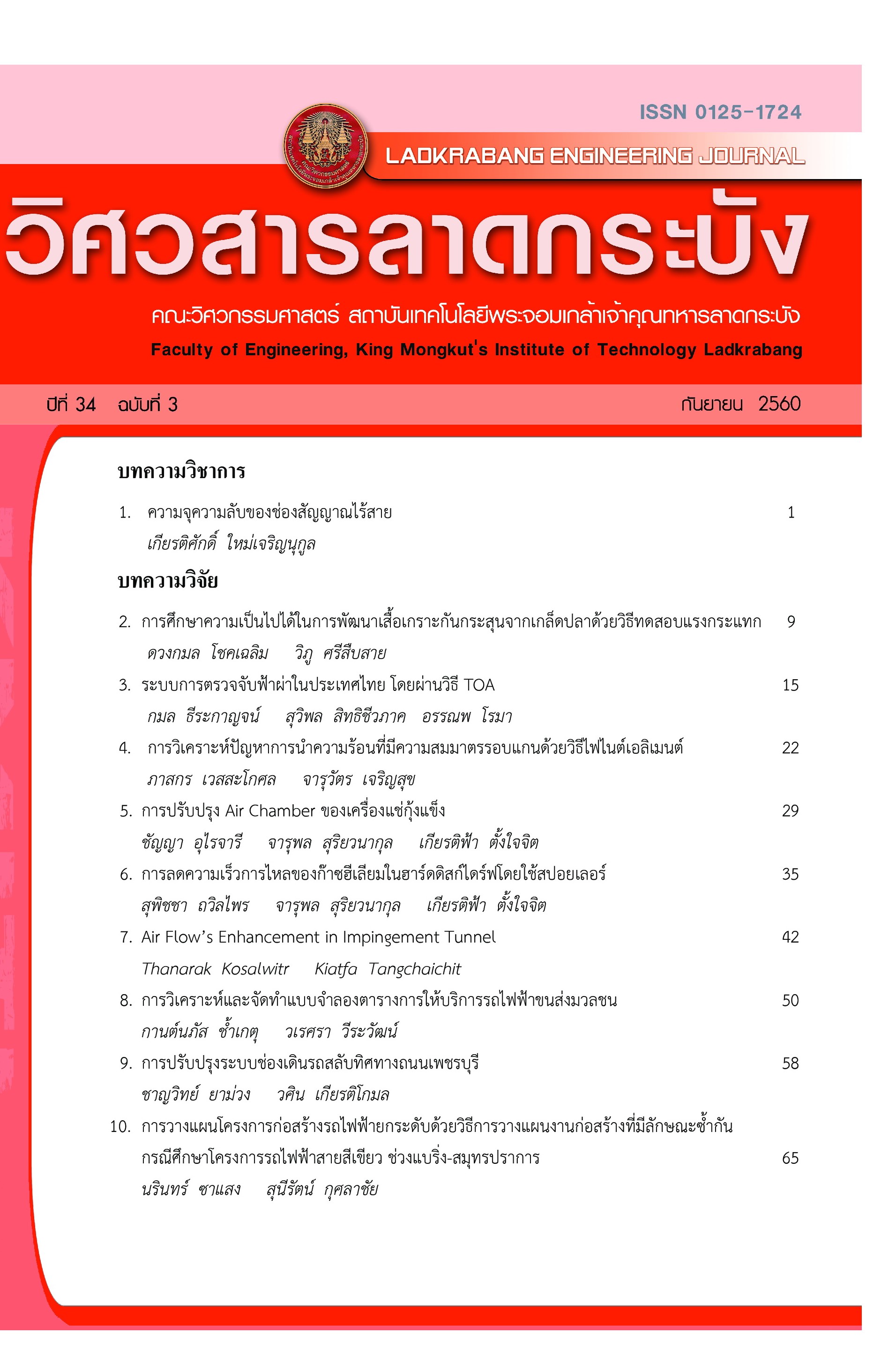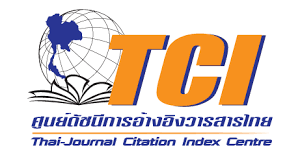Mass Transit Timetable Modeling and Evaluation
Keywords:
Mass transit, Short-turn operation, SimulationAbstract
The mass transit system is supported by Thai Government which expands its in Bangkok Metropolitan Region for serving the growing urban areas. This research focused on the south extension of the metro green line, with total distances of about 35 kilometers and 31 stations (Mochit station to National Housing station). This research studied operation pattern by Communication Based Train Control systems (CBTC) with an application of a simulation method which considered infrastructure, turn back point, rolling stock, and headway (service) that all affect the performance of service. Simulation results showed that a short turn operation solved passenger unbalances that occur between the existing line and the extension line. However, “knock on delay” under the short turn operations, was possible with the increasing of a headway, so the operator of the mass transit should consider turn back point management to reduce the impact of the knock on delay. Hence, in case of double passenger unbalance, the operators should apply 2 short turnings.
References
[2] Wang, Y., B. Ning, T. van den Boom, and B. De Schutter, Background: Train Operations and Scheduling, in Optimal Trajectory Planning and Train Scheduling for Urban Rail Transit Systems. 2016, Springer International Publishing: Cham. p. 7-21.
[3] Deckoff, A.A., The Short Turn as a Real-time Transit Operating Strategy, in Department of Civil Engineering. 1990, Massachusetts Institute of Technology: United States.
[4] Canca, D., E. Barrena, G. Laporte, and F.A. Ortega, A short-turning policy for the management of demand disruptions in rapid transit systems. Annals of Operations Research, 2014: p. 1-22.
[5] Dell, S.W.O., Optimal control strategies for a rail transit line, in Department of Electrical Engineering and Computer Science. 1997, Massachusetts Institute of Technology: United States.
[6] Canca, D., E. Barrena, A. Zarzo, F. Ortega, and E. Algaba, Optimal Train Reallocation Strategies under Service Disruptions. Procedia - Social and Behavioral Sciences, 2012. 54: p. 402-413.
Downloads
Published
How to Cite
Issue
Section
License
The published articles are copyrighted by the School of Engineering, King Mongkut's Institute of Technology Ladkrabang.
The statements contained in each article in this academic journal are the personal opinions of each author and are not related to King Mongkut's Institute of Technology Ladkrabang and other faculty members in the institute.
Responsibility for all elements of each article belongs to each author; If there are any mistakes, each author is solely responsible for his own articles.







